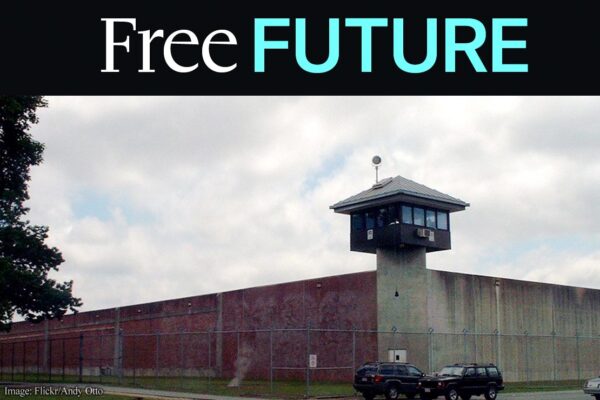Christie Tramples Human Rights with Veto of Solitary Confinement Reforms
Veto means most vulnerable people in NJ’s prisons and jails will suffer, and jeopardizes safety
The ACLU-NJ strongly criticized Christie’s veto of S51, legislation that would have stopped the abuse of solitary confinement. He announced his veto through a statement (PDF) that mischaracterized what the bill would have done and revealed a lack of understanding of how solitary confinement is used in New Jersey.
Solitary confinement is defined as being held in a cell or enclosed space for 22 hours a day or longer, either alone or with another inmate, with severely restricted activity, movement and social interaction.
This bill:
- Banned solitary confinement for the most vulnerable populations, including children, people who have mental illnesses, pregnant women, and people with various disabilities.
- Prohibited solitary confinement for more than 15 consecutive days or 20 days in a 60-day period.
- Required medical clearance and daily evaluations for prisoners in solitary confinement.
The following statement is from ACLU-NJ Senior Staff Attorney Alexander Shalom:
“Today, Governor Christie used his office to perpetrate an injustice rather than end one. Christie chose to make the most vulnerable people in our prisons and jails continue to suffer for no good reason, and he chose to make all of us, including corrections officers, less safe.
“Christie’s veto of solitary confinement reform means that on any given day hundreds of New Jersey inmates, if not thousands, will be punished through a practice widely considered torture, and for no one’s benefit.
“The Department of Corrections covers its eyes to the reality of solitary confinement, and Christie helps pass out the blindfolds. They continue to peddle their fiction that solitary confinement does not exist in New Jersey, but we have a simple message: Facts still matter, Governor Christie. In prisons and jails throughout New Jersey, people continue to suffer from solitary confinement every day, no matter what you call it.
“The broad coalition of supporters of the bill worked with county jail wardens, corrections officers’ unions, and mental health experts to ensure that the bill represented best practices in the corrections field. The Christie Administration, however, blinded itself to reality and refused to answer even the most basic questions.
“We have no doubt that New Jersey will put this barbaric practice behind it soon. Meanwhile, thanks to the Governor’s callous veto, countless New Jerseyans will continue to suffer under his watch.”
In August, the ACLU-NJ won a case on behalf of a prisoner, Rigoberto Mejia, a mentally ill prisoner who had been sentenced to nearly three years of solitary confinement. The decision (PDF) in the case excoriated the Department of Corrections for its treatment of Mejia and its violations of its own regulations. The judge also pointed to obvious holes in the claim that solitary confinement does not exist in New Jersey and lambasted the DOC’s mental health screening standards: The DOC performed a cursory mental health screening through a locked cell door in English. For example, during Mejia’s time in solitary confinement, the DOC concluded from his silence during questioning — while behind a wall with a closed door, and under a bed sheet, with no one able to see his face — that he did not need mental health services.



